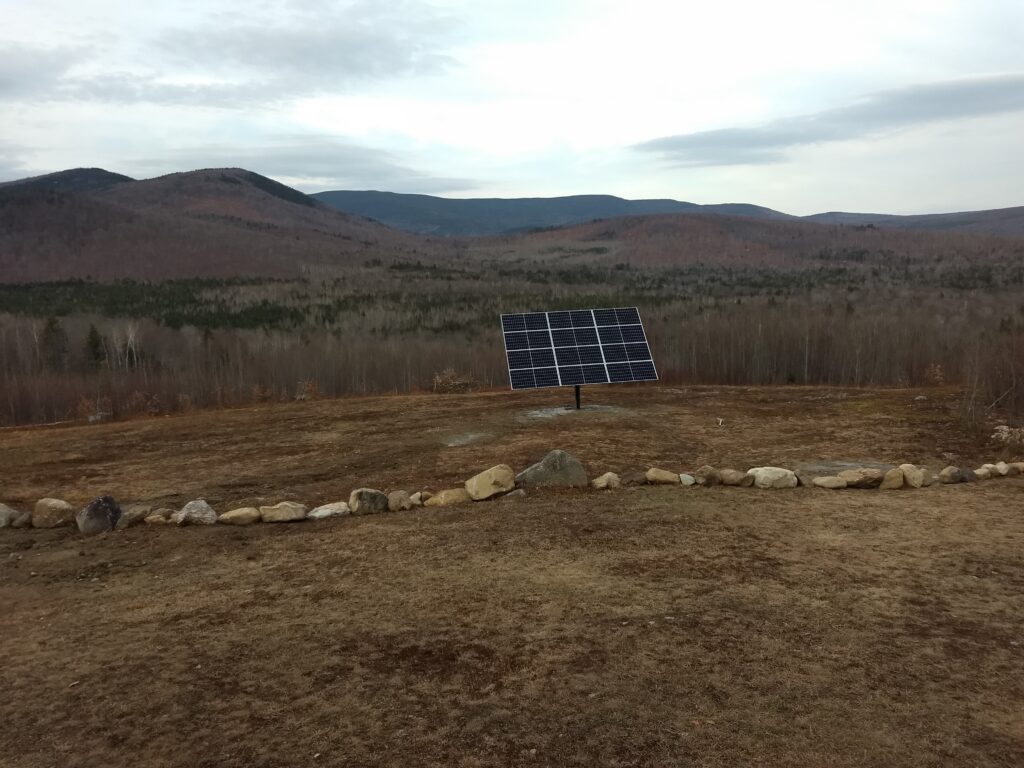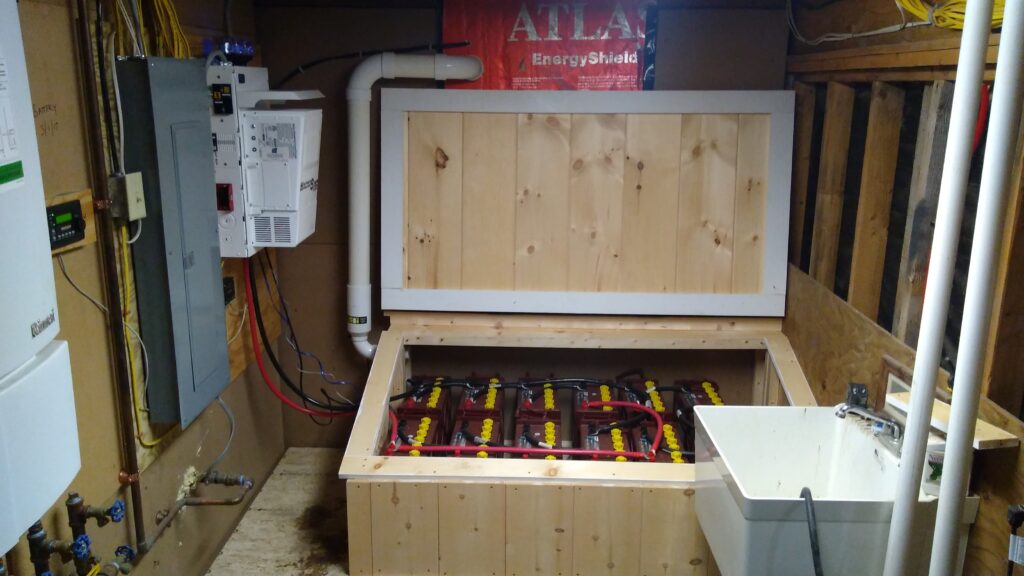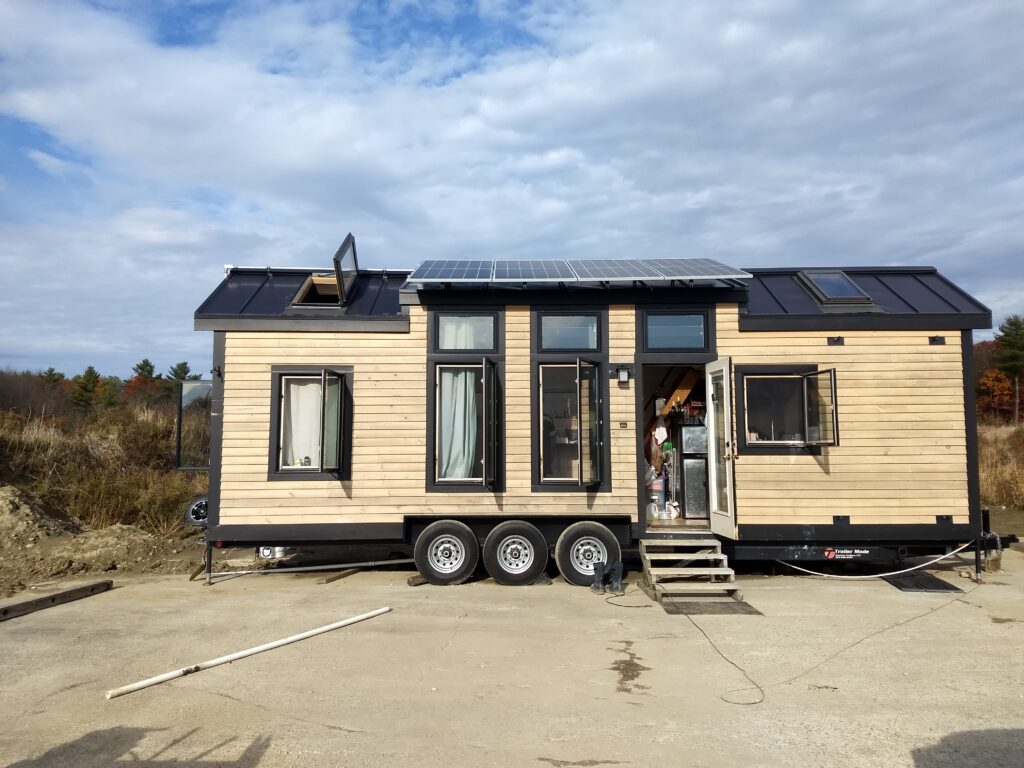Off-Grid Solar Electric Systems
Maine Solar Solutions has a design and installation team experienced with Off-Grid Solar Photovoltaic systems. These systems have special design and operation requirements that make them more challenging to install, and service than a more common “Grid-Tied” solar PV system. They require more components and will cost more compared to a Grid-Tied system.
What Does It Mean To Be “Off-Grid”?

Off-Grid solar PV systems are designed to collect, store, and deliver electrical supply without any connection to the utility grid. Off-Grid differs from other battery backup solutions because it is the primary source of power and must be able to deliver 100% of the energy needs required by a site. Off-grid systems are used in rural or wilderness locations where the nearest power line may be miles away.
Miniature off-grid systems may be used to power small loads such as lights or communication equipment in a barn or other remote location. Most RVs and boats have battery-based electrical systems that may be very similar to a full-size off-grid system for a home.
What are the components of an Off-Grid Solar PV system?
There are 3 major components in an off-grid system: the Battery, the PV array, and the Inverter. The battery is your storage bank and provides energy when the sun is down at night or during times of rain or clouds throughout the year. The PV array charges the battery with energy when the sun shines and should be large enough to fill your battery in one sunny day any time of year. The inverter converts the stored battery DC energy into household AC power which is used by most appliances.

Planning for an Off-Grid Solar PV System

Living with an Off-Grid Solar PV system is going to require patience, compromise, and attention. If you connect to your local utility grid, as long as you pay your bills you can run almost anything you like, at any time. Any Off-Grid system has a finite amount of energy it can collect and store, so you will need to monitor your battery health and be aware of the solar resource available while using energy. You will need to be capable of charging your battery from an alternative source such as a generator.
The average residential home in the US uses 30 kWh per day. In order to successfully live off-grid, you will need to reduce this amount significantly. The primary way to do this is by removing electric loads whenever possible, especially electric heat sources. Electric ovens/ranges, water heaters, heat pumps, and space heaters should never be considered on an off-grid system.
Going Off-Grid With Maine Solar Solutions
If you are considering purchasing or designing an off-grid system in Maine, please fill out the form below or call us at (207) 871-7191. Through our consultative process, you can find out if going off-grid is right for you and which system options will be best suited for your property
